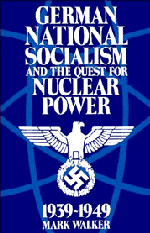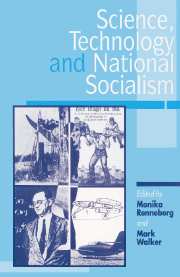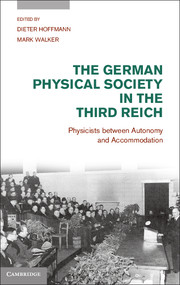Hitler's Atomic Bomb
Who were the German scientists who worked on atomic bombs during World War II for Hitler's regime? How did they justify themselves afterwards? Examining the global influence of the German uranium project and postwar reactions to the scientists involved, Mark Walker explores the narratives surrounding 'Hitler's bomb'. The global impacts of this project were cataclysmic. Credible reports of German developments spurred the American Manhattan Project, the nuclear attacks on Hiroshima and Nagasaki, and in turn the Soviet efforts. After the war these scientists' work was overshadowed by the twin shocks of Auschwitz and Hiroshima. Hitler's Atomic Bomb sheds light on the postwar criticism and subsequent rehabilitation of the German scientists, including the controversial legend of Werner Heisenberg and Carl Friedrich von Weizsäcker's visit to occupied Copenhagen in 1941. This scientifically accurate but non-technical history examines the impact of German efforts to harness nuclear fission, and the surrounding debates and legends.
- Constructs an accurate and engaging account of German efforts to build nuclear reactors and atomic bombs during World War II
- Explores the global consequences of the German uranium project during World War II and beyond
- Sheds light on the debates and legends surrounding “Hitler's bomb”, both inside and outside of Germany
Reviews & endorsements
‘Hitler’s Atomic Bomb is a masterful account of the German nuclear program in history and mythology. Based on the latest research, Walker demonstrates that Nazi Germany never had the resources to build a bomb, but that possibility haunted and divided physicists long after the war.’ Michael J. Neufeld, author of Von Braun: Dreamer of Space, Engineer of War
‘In the most comprehensive history yet of the German wartime nuclear fission project, Mark Walker masterfully explores the origins of the project and its failure to achieve an atomic bomb; the scientists’ difficulties and dilemmas encountered before, during and after the Third Reich; and the valuable lessons for us all.’ David Cassidy, author of Beyond Uncertainty: Heisenberg, Quantum Physics, and the Bomb
‘There’s more to the story of Hitler’s scientists than whether they knew how to build an atomic bomb. They navigated the politics of the Third Reich, kept working as their world collapsed, and later tried to rebuild their reputations. Mark Walker weighs in on this controversial history and offers a scathing portrait of science under National Socialism.’ Jacob Darwin Hamblin, author of The Wretched Atom: America’s Global Gamble with Peaceful Nuclear Technology
‘Recommended.’ R. T. Ingoglia, Choice
‘Walker has made a major contribution to the untangling of history and legend …. This book is highly recommended for libraries, scholars, and students.’ Dolores Augustine, Technology and Culture
Product details
September 2024Hardback
9781009479288
380 pages
236 × 159 × 25 mm
0.67kg
Available
Table of Contents
- Introduction
- Part I. The Bomb:
- 1. Farm hall
- 2. Nuclear fission
- 3. Lightning war
- 4. Selling uranium
- 5. Total war
- 6. The War is Lost
- Part II. Living with the Bomb
- 7. Oversimplifications
- 8. Compromising with Hitler
- 9. Rehabilitation
- 10. Copenhagen
- Conclusion
- Epilogue. The historian as historical actor.

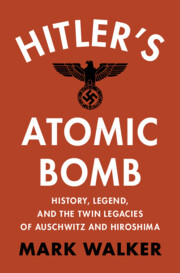
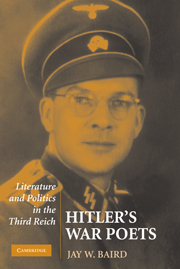
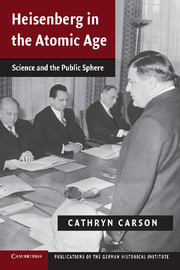
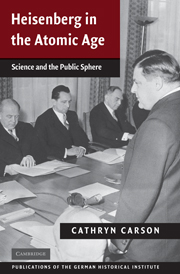
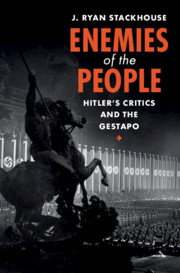




.jpg)
